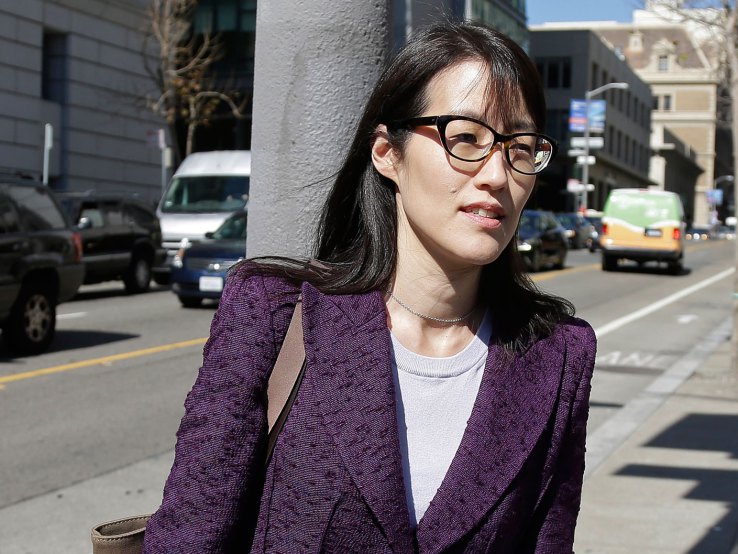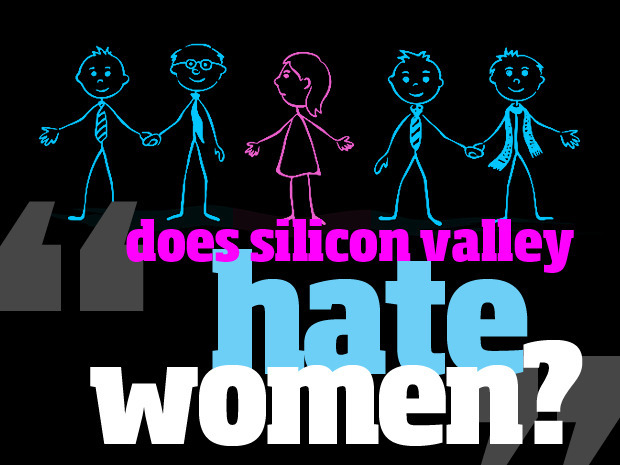Ellen Pao may have lost in court, but her case raises serious issues about sexism and promotion policies in Silicon Valley.
After several days of deliberations recently, a San Francisco Superior Court jury came to a conclusion in Ellen Pao vsa. Kleiner Perkins Caufield & Byers. The gender discrimination trial began with a lawsuit filed in May 2012 and culminated this past month in a closely watched five-week-long courtroom trial.
Pao claimed, among other things, that gender discrimination was at the core of her exclusions from trips and growth within KPCB, the legendary Silicon Valley venture capital firm. She claimed that after she ended an affair with a firm executive, the company hindered her growth. In addition, Pao was fired six months after filing her complaint. She claimed that it was due to her filing suit, but the firm claims she was fired based on her performance.
The jury decided in favor of KPCB on the four relevant questions: that the firm’s decision not to promote Pao wasn’t because she is a woman; that it did take reasonable steps to help her; that it had tried to prevent discrimination; and that no one at the company had retaliated against her for complaining.
Women of Sand Hill Road — What Now?
The case raises a number if critical issues about venture capital firm operations, and female employees’ potential in the industry. Among them is latent sexism along Sand Hill Road, the leafy Silicon Valley thoroughfare where many blue chip VC firms are based.
While the jury sided against Pao, her claims of gender discrimination are eminently plausible. New York writer Annie Lowrey recently described the subtle sexism women endure every day. It’s difficult to define or put a finger on, but that we know is the result of a mindset that leads to greater gender inequalities.
There seems to have been much of this in Ellen Pao’s case. And just like many of us have trouble convincing our male friends that catcalling really is degrading, it seems to have been difficult for Pao to fully drive home her arguments about the kind of gender discrimination she experienced. But that doesn’t mean her experience wasn’t real or important.
And the thinking goes that men may feel it is easier to achieve a kind of rapport with other men, than with women. This really speaks to the “boys club” mentality that still exists at the highest levels of many industries. It’s the idea that women just don’t get it somehow. That they’re not exactly team players in the same way that men are, that they’re “too sensitive,” and that they’re going to leave when they have babies.
Of course, it’s important to note that this is not always the case. There are many men in the venture capital world who understand the importance of championing women. They realize the importance of diversity in their firms, and they’re not afraid to build meaningful professional relationships with their female partners.
Options for Women
Here are a few ways to move forward.
Start Female focused VC firms
There are some who suggest that, because the fraternity-like mentality is at the heart of most VC firms, the best option for women who want to become senior partners is to start their own firms. On one hand, it would be great to see more women-run firms. And, of course, the more firms there are that are run by women, the more likely it is that the old ways are likely to change.
Build Alliances With Men Who Understand There Is A Problem
While it seems that NO ONE understood what was really happening at KPCB, there are good men out there. Men who get it.
Women shouldn’t have to run away from the big firms in order to succeed. And, as I mentioned above, there are plenty of men who are not apprehensive about working with women, and who understand that there’s a problem here. Therefore, it seems more beneficial for women to get the support of their male allies, and also to continue speaking up for what they believe is right.
For example, Pao claimed that, when she spoke about alleged harassment to her superiors, they told her “that she should just accept it.” Whether events unfolded precisely as Pao described or not, the important point here is that women should not just take what’s thrown at them. They should continue doing great work, recruit male coworkers to their cause, and speak up when they feel they’re being treated unfairly. Women should not have to leave prestigious firms just to get ahead.
Document All Sexist Behavior And Then Bring It To Their Superiors
Ellen Pao’s case made it obvious that sending repeated emails about harassment may cause more harm than good. Motherly advice from a colleague who was going through harassment from a VC-turned-entrepreneur was document to EVERYTHING he does. From the inappropriate comments to the booking only one room to apparently “save money” while away at a conference.
What’s The Takeaway?
Although Ellen Pao lost on all counts, her case helped bring to light important issues about the ways in which women are treated in venture capital firms and, in fact, in nearly all industries.
With the persistence of pay inequality, it should not be a surprise that gender discrimination still exists in many workplaces. Women who are talented, driven, and committed to their work still do not reach the upper echelons of most industries in fair numbers. Ellen Pao’s case drove this discussion into the open — and the more attention these issues receive, the more conscious society will be about the issues.
By Mira Veda and Sarah Cooke

